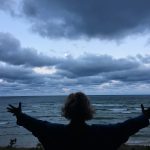 By Judith E. Lipson, M.A., LPC
By Judith E. Lipson, M.A., LPC
Many of you are finding yourselves encountering corona fatigue – tired of managing protocols, social distancing and the many features of social isolation that have been brought about by this pandemic. And with no complete let-up in sight, folks are tired of continuing the protocols that they had found themselves maintaining just days or weeks ago. You, on the other hand, may be an individual who has decided that you still want to maintain certain protocols, and are feeling out-voted or shamed for maintaining your beliefs and practices.
Additionally, many citizens are experiencing a sense of instability, because not only are you dealing with the pandemic, but also the sense of insecurity when observing the seeming collapse (or major changes) to various systems and prior beliefs. For some this is observed, for others of you this is day-to-day living.
We are watching as society asks the necessary questions that could lead to changes in our health-care, insurance and educational systems, and the effect that all this is having on our jobs, businesses, and the economy. We, in the United States, are also being asked to assess the ways that people of color, women, and under-represented individuals have been, and currently are, being treated. Regardless of which “side” you see yourself on, these occurrences can really rock one’s center, further leading to a sense of instability.
These are hard times. And we are reminded frequently, just living through this, of how this is unprecedented.
During conversations regarding these situations, I have encouraged my clients to look within for their stability:
- What are the values that you hold in importance?
- What are the practices that you deem vital?
Years ago I heard author Carolyn Myss discuss the roots of peer expectations. Just as a school of fish swim together to feel protected by their numbers (indeed, only the outer ones are most likely to be eaten), so too do people tend to want to be like the group and not stick out. And according to her, this begins with the teachings by our family of origin. However, societal practices actually evolve by thinking differently than others, and exploring these new ideas.
Are you willing to be different from your pod? What experiences have you already had standing amongst others who hold differing viewpoints? A few months ago I read Brené Brown’s Braving the Wilderness. She writes about the importance of allowing yourself to stand in the wilderness (feeling alone and unprotected), while holding to your beliefs and values. This doesn’t have to be a raucous or threatening stand, and one needn’t feel threatened either. Standing in the wilderness means believing in something enough to allow yourself to feel vulnerable, and not be deterred by others’ actions or words. The result is that you experience your own power – your own stability – and are less likely to need to look outside yourself for your security.
I hope that you will consider these words and practices as you navigate these turbulent times. Remember, you needn’t always look outside yourself. Your stability is within you.
Judy Lipson is a Licensed Professional Counselor and educational strategist in West Bloomfield, MI. She helps clients of all ages who have learning difficulties, work or school related anxiety, ADHD, Asperger’s Syndrome or Autism Spectrum Disorders, and those who wish to Remember and Become ‘Who You Really Are’. Contact Judy at 248.568.8665 and judylipson@spiralwisdom.net, and visit www.SpiralWisdom.net for more information.
This article is for informational purposes and is not meant to replace medical care.

